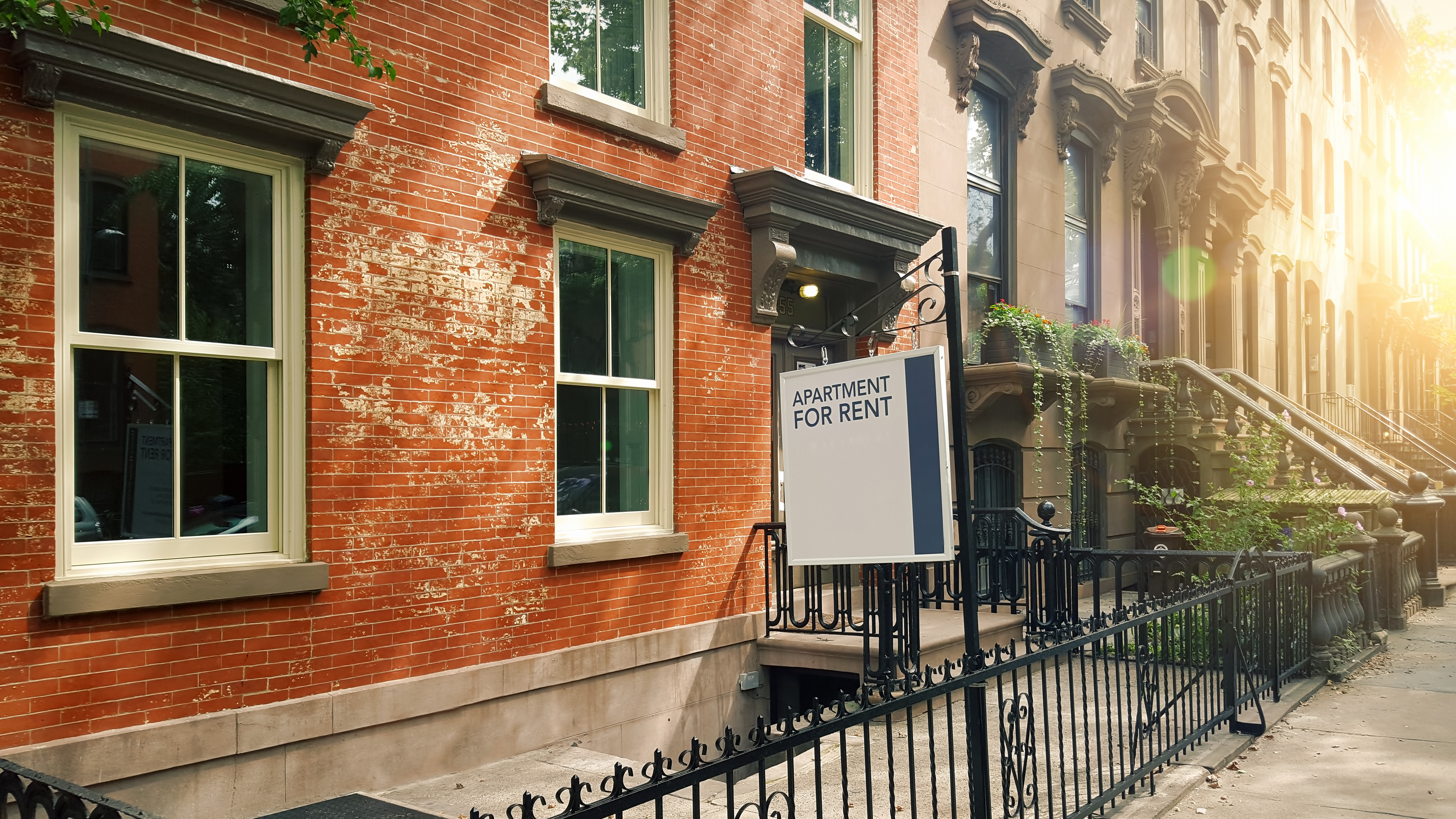America's 6 cheapest cities for renters
You don't have to move to the suburbs to benefit from affordable rental prices


A free daily email with the biggest news stories of the day – and the best features from TheWeek.com
You are now subscribed
Your newsletter sign-up was successful

With the cost of housing on the rise, many Americans want to live in a city where their money will go further. Mortgage rates spiked in an already tough housing market in the last year, but renters weren't immune from price hikes either: Average rents for consumers in urban areas increased 8 percent year-over-year, per data from the Bureau of Labor Statistics.
You might think that finding cheap rent requires moving out of the city, altogether but Kiplinger reports that "apartment dwellers really can find bargains in some of the nation's largest urban areas." In fact, it did the legwork to determine the largest cities in the U.S. (meaning those with metro populations of at least 1 million) with the cheapest rents, based on data from the Council for Community and Economic Research (C2ER) Cost of Living Index. Rent prices weren't pulled from city outskirts either — the rents listed below are for the center of the metro area surveyed.
Here are the cities that Kiplinger determined "offered the steepest discounts to the national average for apartments of all types."
The Week
Escape your echo chamber. Get the facts behind the news, plus analysis from multiple perspectives.

Sign up for The Week's Free Newsletters
From our morning news briefing to a weekly Good News Newsletter, get the best of The Week delivered directly to your inbox.
From our morning news briefing to a weekly Good News Newsletter, get the best of The Week delivered directly to your inbox.
1. Oklahoma City, Okla.
This city offers "remarkably affordable prices for an urban area of its size," Kiplinger says. With an average apartment rent of $892, Kiplinger determined that no U.S. metro area with a population of more than 1 million offers cheaper rents than Oklahoma City. Whether you're right in Oklahoma City or in the greater metro area including Norman and Edmond, rents in this city are 38 percent lower than the national average.
These cheaper rents may be due in part to the fact that Oklahoma City has a lower median household income and a higher poverty rate compared to the surrounding metro area. Still, the city offers a number of employment opportunities, particularly in the oil industry, and it has city attractions ranging from museums to a philharmonic orchestra to the NBA's Oklahoma City Thunder.
When you apply via our links we may earn an affiliate commission
2. Tulsa, Okla.
Another Oklahoma city snags second on this list, with average apartment rents hovering around $961. This is a third below the national average. Kiplinger isn't the only one to recognize this city's affordability either — Earnest also ranked Tulsa among the least expensive cities for renters, finding that residents spend an average of 13.8 percent of their total income on rent.
A free daily email with the biggest news stories of the day – and the best features from TheWeek.com
This city also has a lot to offer, with concert venues, historic sites, and a sprawling wilderness area less than 15 minutes from downtown. "As much as Tulsa has to offer for everyone," Kiplinger says, "high prices aren't on the list."
3. Birmingham, Ala.
Birmingham places third for the cheapest rent in a big U.S. city. Its apartment rents average around $1,000, which is 30 percent under the national average. But even with these affordable rents, Realtor.com makes the case that it's even cheaper to buy than rent in Birmingham. The property website estimates that the monthly cost for a starter home is "just under $900," despite the recent housing price spikes.
Plus, Birmingham has a whole lot to offer its residents. Kiplinger describes it as "a commercial and educational powerhouse" as well as "the cultural capital of Alabama."
4. St. Louis, Mo.
The city "known as the Gateway to the West" ranks No. 4, with average apartment rents around $1,001, which is 30 percent below average in the U.S., Kiplinger says. These low rents are accompanied by a median household income that's higher than the national median, thanks to the number of universities and major corporations in the city. Among those are seven Fortune 500 companies and Saint Louis University and Washington University in St. Louis.
This is another city where Realtor.com contends it may be cheaper to buy than rent, though just by "a hair."
5. Buffalo, N.Y.
The only Northeastern city that made Kiplinger's list is Buffalo, where the average apartment rent is 27 percent below the national average at $1,046. Buffalo has "declined precipitously from its early 20th century peak," Kiplinger says, but "that change in fortune contributes mightily to Buffalo's affordability today. Other costs of living are also lower than average, including groceries, utilities, transportation and health care.
As the second-largest city in a state with otherwise high rents (Earnest rates New York No. 16 among the most expensive states for rent), Buffalo still boasts a number of attractions. There are cultural and architectural gems, as well as a handful of major research centers and professional sports teams.
6. Cincinnati, Ohio
Coming in at No. 6 is Cincinnati, where the average apartment rent is $1,144. Per Kiplinger, "[t[hat's a savings of almost 20 percent off the national average." That discount applies to the overall costs of housing as well.
This notably low pricing is particularly impressive given all the city of Cincinnati has to offer. In the metro area with more than 2.2 million people, there are seven Fortune 500 companies, a number of sports teams, and various events and attractions. "The downside of having some of the cheapest apartment rents in the nation?" The poverty rate within the city proper is more than double that of the Greater Cincinnati metro area, Kiplinger explains.
Becca Stanek has worked as an editor and writer in the personal finance space since 2017. She has previously served as the managing editor for investing and savings content at LendingTree, an editor at SmartAsset and a staff writer for The Week. This article is in part based on information first published on The Week's sister site, Kiplinger.com
New Tax Rules for 2023: Download your free issue of The Kiplinger Tax Letter today. No information is required from you.
Becca Stanek has worked as an editor and writer in the personal finance space since 2017. She previously served as a deputy editor and later a managing editor overseeing investing and savings content at LendingTree and as an editor at the financial startup SmartAsset, where she focused on retirement- and financial-adviser-related content. Before that, Becca was a staff writer at The Week, primarily contributing to Speed Reads.
-
 The environmental cost of GLP-1s
The environmental cost of GLP-1sThe explainer Producing the drugs is a dirty process
-
 Greenland’s capital becomes ground zero for the country’s diplomatic straits
Greenland’s capital becomes ground zero for the country’s diplomatic straitsIN THE SPOTLIGHT A flurry of new consular activity in Nuuk shows how important Greenland has become to Europeans’ anxiety about American imperialism
-
 ‘This is something that happens all too often’
‘This is something that happens all too often’Instant Opinion Opinion, comment and editorials of the day
-
 How your household budget could look in 2026
How your household budget could look in 2026The Explainer The government is trying to balance the nation’s books but energy bills and the cost of food could impact your finances
-
 What is a bubble? Understanding the financial term.
What is a bubble? Understanding the financial term.the explainer An AI bubble burst could be looming
-
 The FIRE movement catches on as people want to retire early
The FIRE movement catches on as people want to retire earlyIn the spotlight Many are taking steps to leave the workforce sooner than usual
-
 Who wants to be a millionaire? The dark side of lottery wins
Who wants to be a millionaire? The dark side of lottery winsIn The Spotlight Is hitting the jackpot a dream come true or actually a nightmare?
-
 How can you find a financial adviser you trust?
How can you find a financial adviser you trust?the explainer Four ways to detect professionals who will act in your best interest
-
 Is it worth renovating before listing your home?
Is it worth renovating before listing your home?The explainer Getting your house in top-notch shape will help attract potential buyers, but not all renovations are worth the money
-
 Hoping to sell your house in 2025? Here's what to expect.
Hoping to sell your house in 2025? Here's what to expect.The Explainer Will the housing market favor buyers or sellers this year?
-
 How can you save on homeowners insurance?
How can you save on homeowners insurance?The Explainer With the rise in extreme weather, house protection is a non-negotiable
